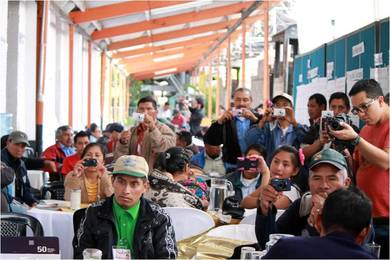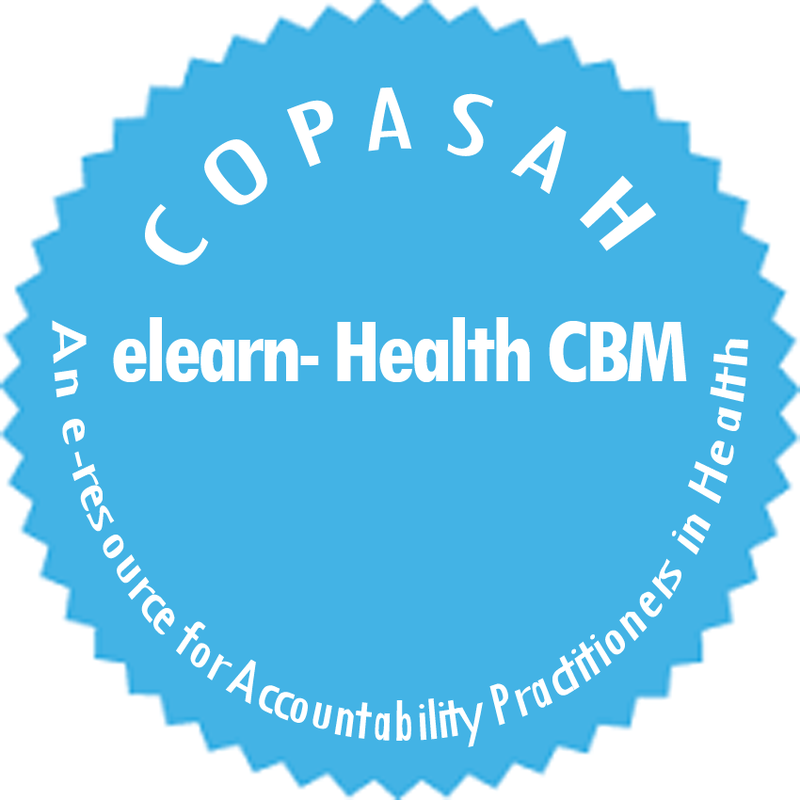
|
|
Community Defenders of the Right to Health in Guatemala
Community defenders, volunteers elected by communities to implement monitoring and evaluation of public policies and healthcare services in Guatemala have been engaging in strategic advocacy with municipal, provincial and national government with explicit demands to eliminate barriers to access and the discrimination experienced by rural indigenous families when seeking healthcare.
|
WALTER FLORES
|
 Community Defenders of the Right to Health
Community Defenders of the Right to Health
Centro de Estudiospor la Equidad y Gobernanza en los Sistemas de Salud (CEGSS) has been working closely with community organisations in 37 rural indigenous municipalities to transfer the knowledge and skills required to challenge and overcome ethnic discrimination in the Guatemalan health system. By implementing an approach that integrates social accountability and legal empowerment, CEGSS is supporting the collective action of Community Defenders.
Community defenders are volunteers elected by their own communities to implement monitoring and evaluation of public policies and healthcare services. They also collect complaints and evidence of right to health violations in their communities and translate it to corresponding authorities. Community defenders also engage in strategic advocacy with municipal, provincial and national government with explicit demands to eliminate barriers to access and the discrimination experienced by rural indigenous families when seeking healthcare.
CEGSS organized the first national meeting of community defenders on December 9 and 10, 2014, which was attended by 88 representatives from 37 rural indigenous municipalities. The objectives of the meeting were a) To assess the achievements, challenges and lesson learned out of the implementation of strategic advocacy actions b) To exhibit the work of community defenders that were trained during the year 2014 to produce audiovisual evidence of right to health violations and c) To assess the advances, challenges and lesson learned out of the web-based platform used by community defenders, to report complaints of right to health violations.
Apart from reflecting on their own work, community defenders engaged with representative of the National Ombudsman Office to review the status of the complaints transferred to that office. Defenders also engaged with representative of the United Nations High Commission for Human Rights and discussed potential of collaboration between that office and the network of community defenders for the year 2015.
A new website to disseminate the work of the community defenders was also launched www.vigilanciaysalud.com This site includes all the audiovisual evidence (video, radio, photography and newsletters) produced by community defenders and a link to the web-based platform to report complaints of right to health violations at healthcare facilities serving rural indigenous communities: http://vigilanciaysalud.com/plataforma/
The meeting concluded with a stronger bond and mutual commitment between community defenders and CEGSS. A joint plan was also envisaged for the year 2015 that includes new activities such as a mobile exhibit of the audiovisual evidence of right to health, implementation of campaigns through social media and training a new cadre of community defenders in the use of audiovisual evidence for human rights.
To know more about community defenders or the web-based platform to report complaints, please contact Walter Flores: [email protected] or [email protected]
To know about the work of CEGSS visit www.cegss.org.gt
Community defenders are volunteers elected by their own communities to implement monitoring and evaluation of public policies and healthcare services. They also collect complaints and evidence of right to health violations in their communities and translate it to corresponding authorities. Community defenders also engage in strategic advocacy with municipal, provincial and national government with explicit demands to eliminate barriers to access and the discrimination experienced by rural indigenous families when seeking healthcare.
CEGSS organized the first national meeting of community defenders on December 9 and 10, 2014, which was attended by 88 representatives from 37 rural indigenous municipalities. The objectives of the meeting were a) To assess the achievements, challenges and lesson learned out of the implementation of strategic advocacy actions b) To exhibit the work of community defenders that were trained during the year 2014 to produce audiovisual evidence of right to health violations and c) To assess the advances, challenges and lesson learned out of the web-based platform used by community defenders, to report complaints of right to health violations.
Apart from reflecting on their own work, community defenders engaged with representative of the National Ombudsman Office to review the status of the complaints transferred to that office. Defenders also engaged with representative of the United Nations High Commission for Human Rights and discussed potential of collaboration between that office and the network of community defenders for the year 2015.
A new website to disseminate the work of the community defenders was also launched www.vigilanciaysalud.com This site includes all the audiovisual evidence (video, radio, photography and newsletters) produced by community defenders and a link to the web-based platform to report complaints of right to health violations at healthcare facilities serving rural indigenous communities: http://vigilanciaysalud.com/plataforma/
The meeting concluded with a stronger bond and mutual commitment between community defenders and CEGSS. A joint plan was also envisaged for the year 2015 that includes new activities such as a mobile exhibit of the audiovisual evidence of right to health, implementation of campaigns through social media and training a new cadre of community defenders in the use of audiovisual evidence for human rights.
To know more about community defenders or the web-based platform to report complaints, please contact Walter Flores: [email protected] or [email protected]
To know about the work of CEGSS visit www.cegss.org.gt
|
|
ABOUT AUTHORS
Walter Flores is the executive director of Centro de Estudios para la Equidad y Gobernanza en Sistemas de Saludat (Centre for the study of Equity and Governance in Health Systems) CEGSS, Guatemala and has been the global coordinator of COPASAH (2011-14). He is a Steering Committee member of COPASAH and holds both a Masters and a PhD from the Liverpool School of Tropical Medicine, UK
Walter Flores is the executive director of Centro de Estudios para la Equidad y Gobernanza en Sistemas de Saludat (Centre for the study of Equity and Governance in Health Systems) CEGSS, Guatemala and has been the global coordinator of COPASAH (2011-14). He is a Steering Committee member of COPASAH and holds both a Masters and a PhD from the Liverpool School of Tropical Medicine, UK







